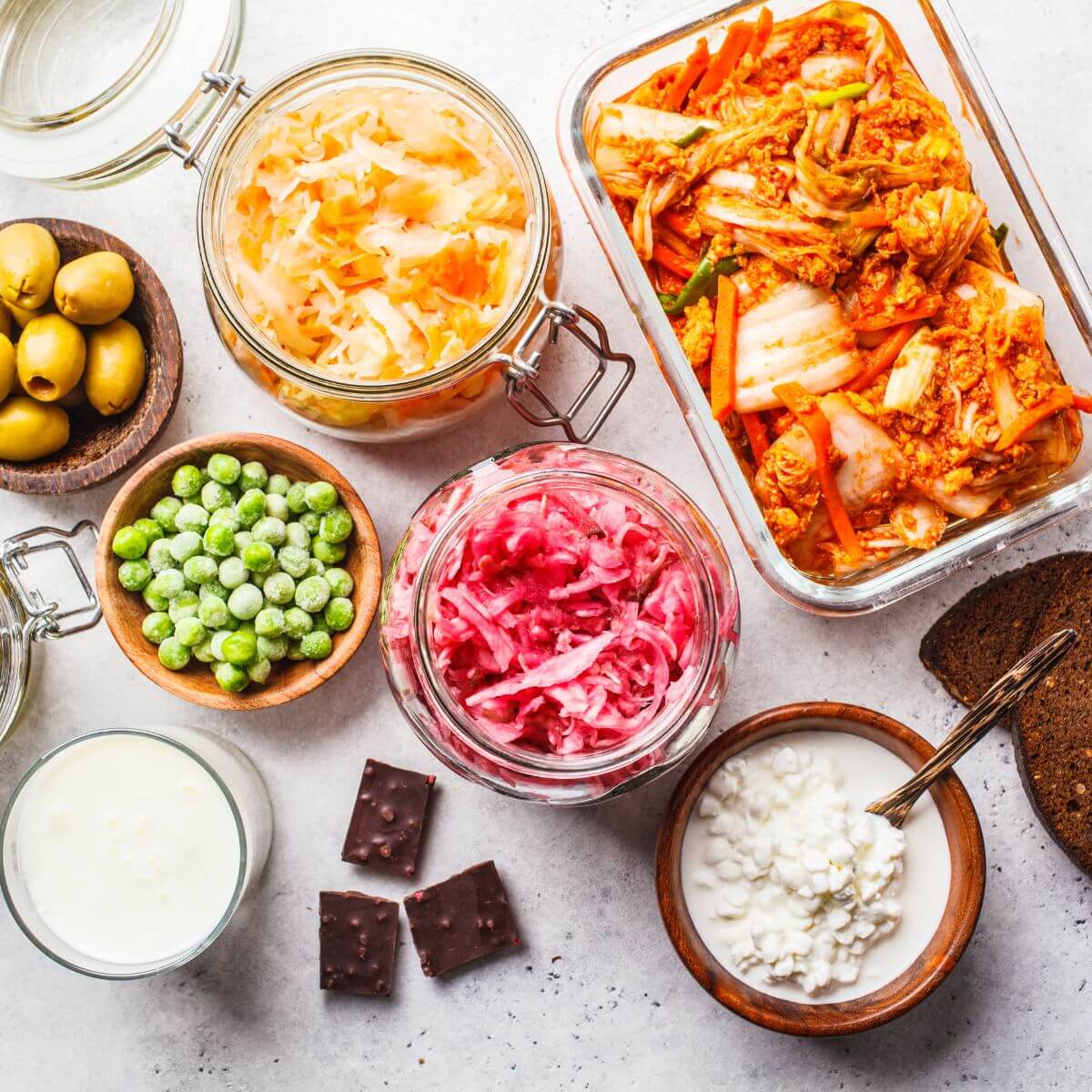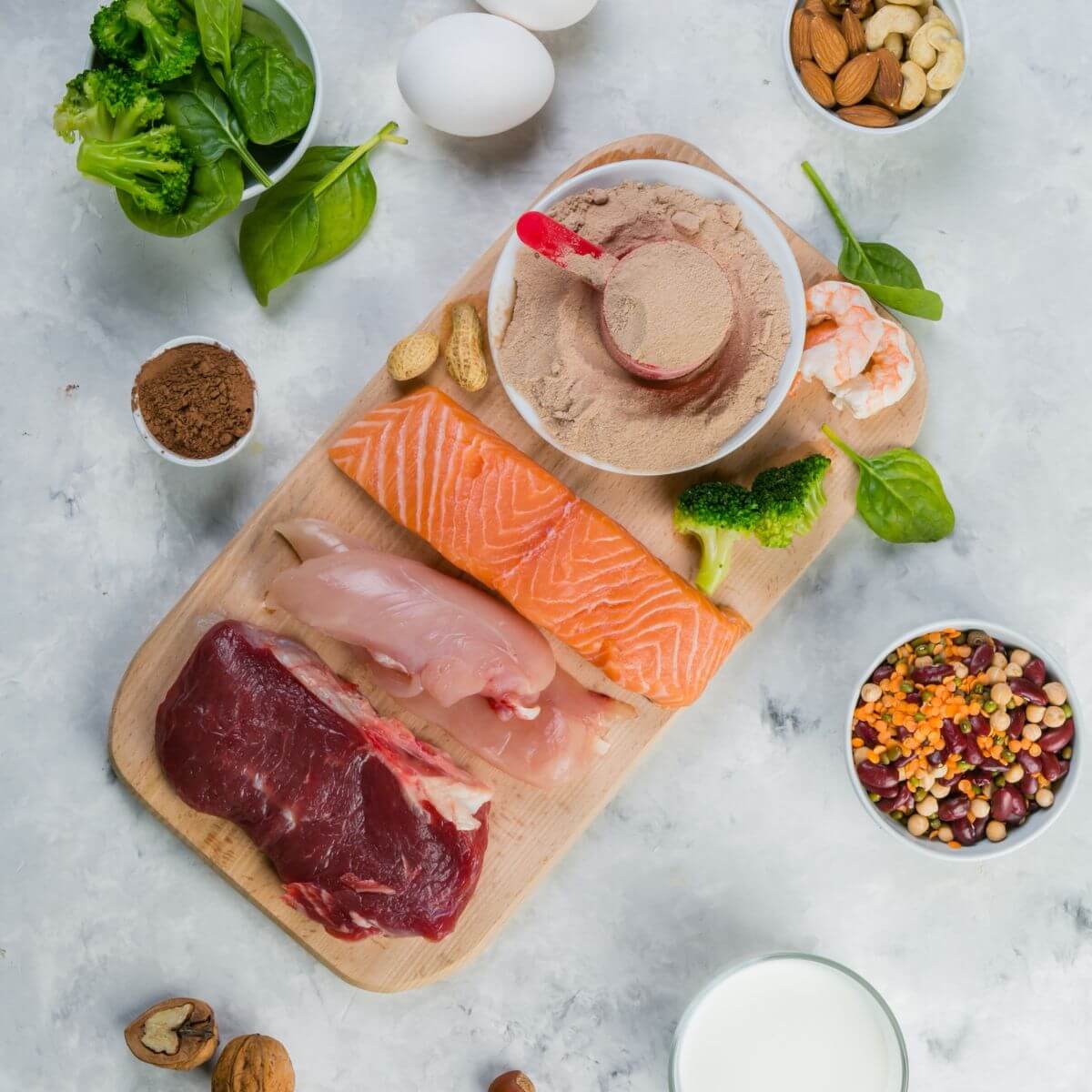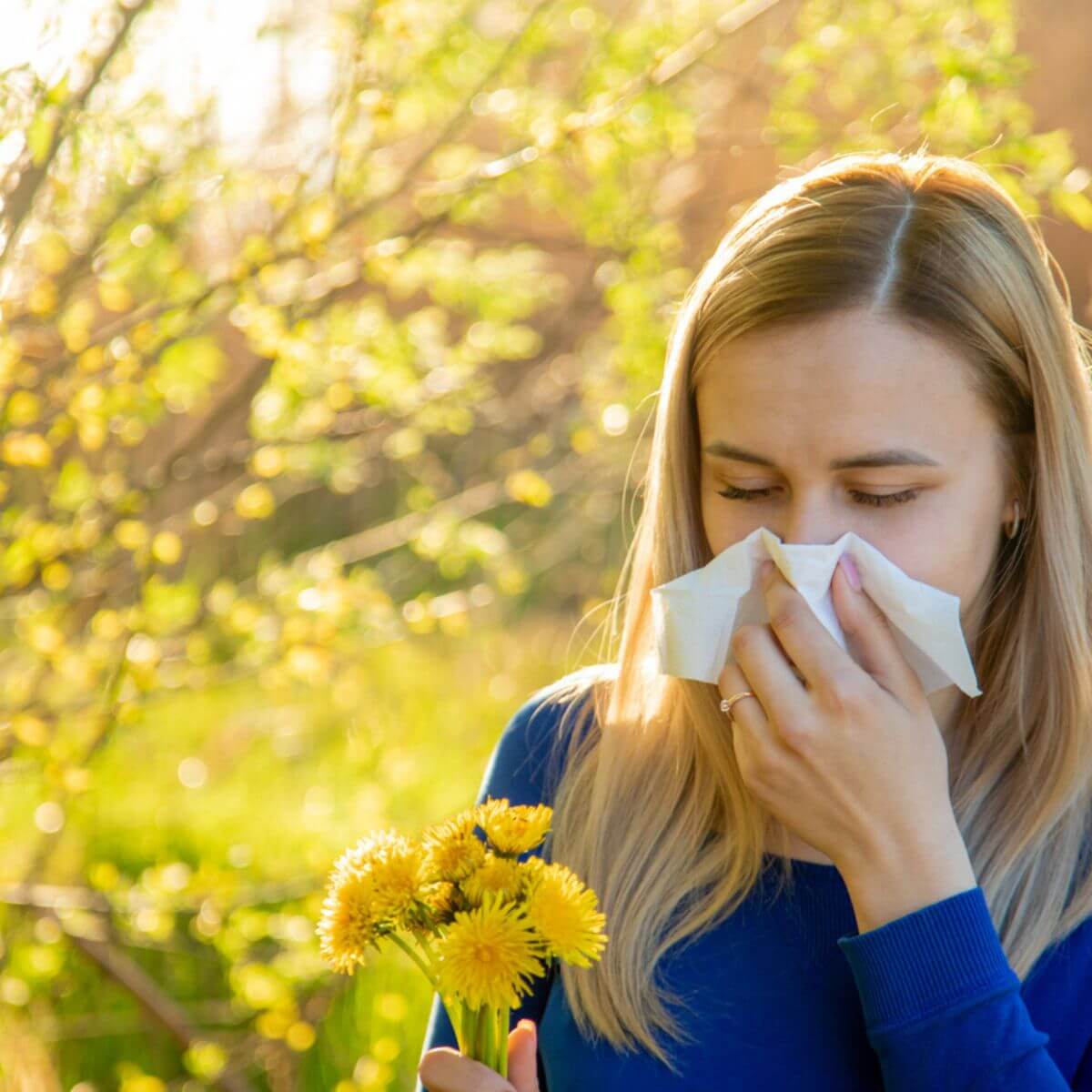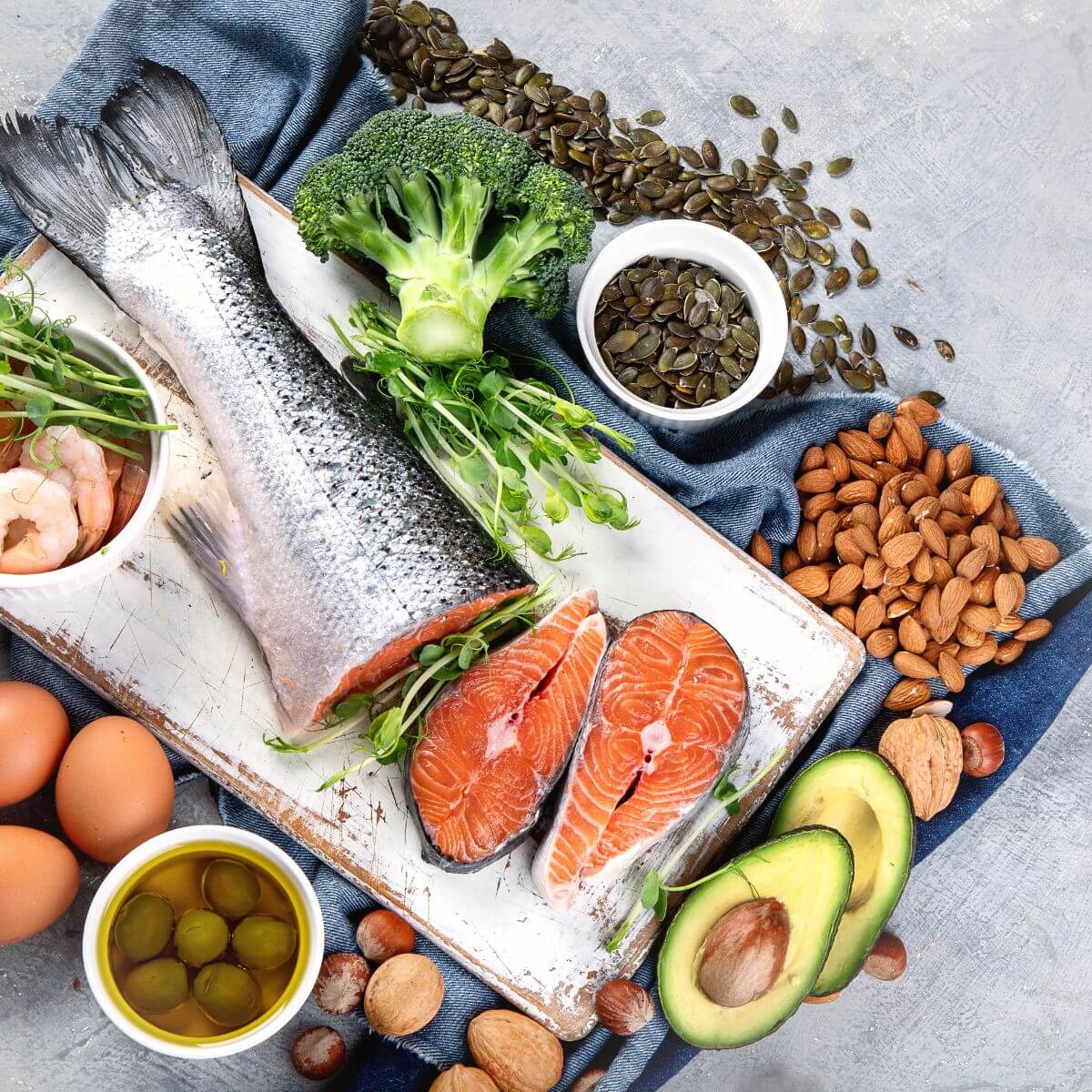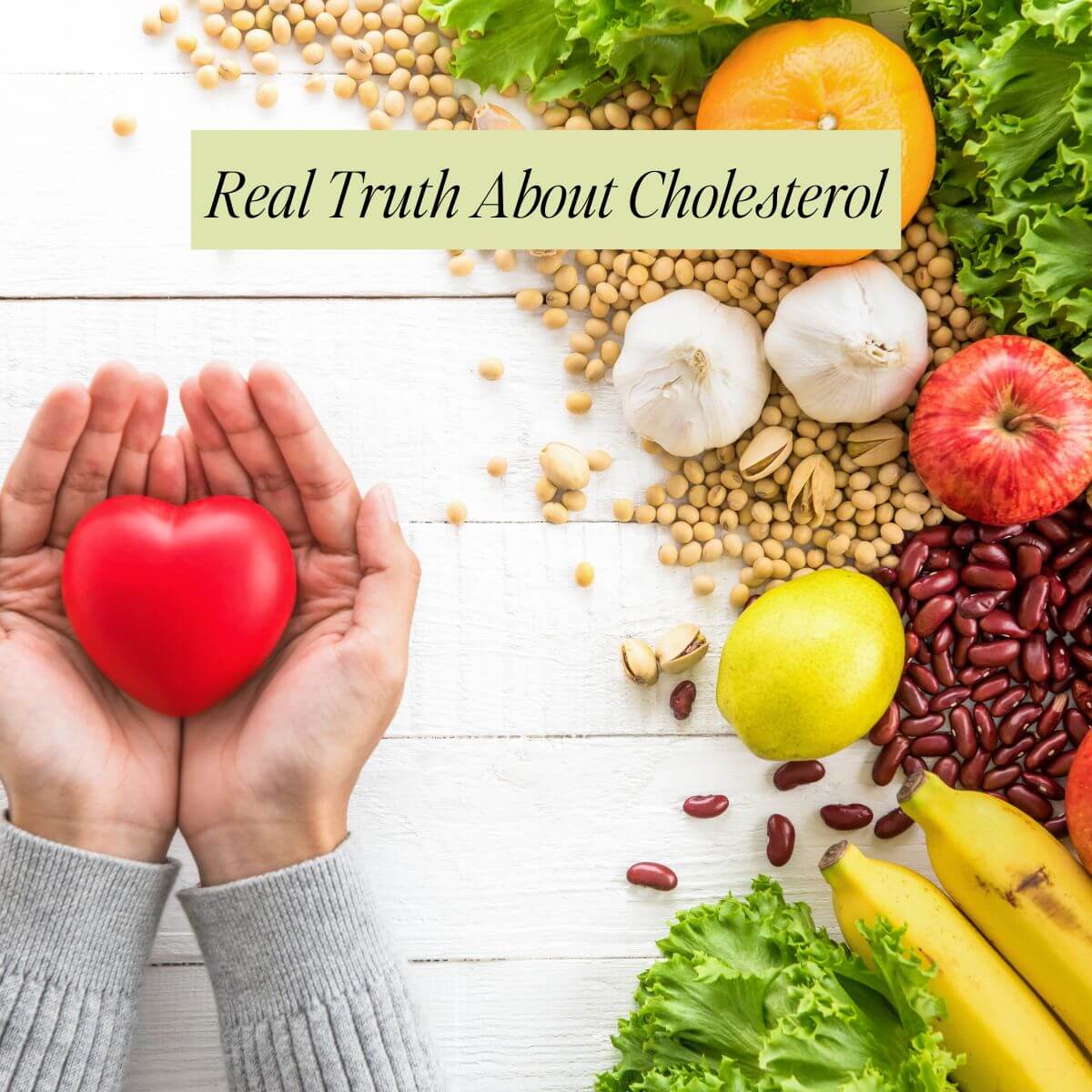Did you know that there are simple ways to improve your mood with food? So, let’s unpack some exciting (and preliminary) new research about the link between gut health, mood, and stress. This week, I’ll talk about your friendly resident gut microbes, probiotic foods, and supplements. In addition, I will offer some simple recipes to keep your gut and taste buds happy.

My motto is eating well can be your nutrition cure.
Gut Microbes and Mood Benefits
Firstly, there are trillions of microbes that happily live in our gut. These friendly microbes do more than help us digest foods, make vitamins, and protect us from the not-so-friendly microbes.
They have mood-boosting and stress-busting functions too!
Further, it’s a hotbed of research right now. We’re finding out more about their awesome health and mood/stress benefits every day.
While the research is just starting to figure out the many gut microbe-brain connections, it’s such a cool new topic. That is to say, I couldn’t wait to share it with you!

Gut Microbe and Probiotics
The microbes that live in our guts are known as our “gut microbiota”. But the microbes that we can ingest are known as “probiotics”.
“Probiotics” are live organisms that you can eat, drink, or take as a supplement.
For example, they turn milk into yogurt, and cabbage into sauerkraut. Above all, probiotics are great for both your gut health and mental health. So, this is just one easy way to improve your mood with food.
Similarly, special probiotics with mental health benefits are called “psychobiotics,” (psycho = mental health, and biotics = live). They are live organisms that can benefit our psyche.

Probiotic-Rich Foods & Supplements for Mood-Boosting Benefits
Probiotics can be found in yogurt, sauerkraut (and other fermented veggies), miso, tempeh, and kimchi. You can drink them in kefir or kombucha. In addition, be sure to choose unpasteurized ones that will be refrigerated in your local grocer.
However, unpasteurized foods are not recommended if you are pregnant or have a compromised immune system. Please check with your healthcare provider.
Of course, there are a number of probiotic supplements available too. But, check with your healthcare provider to identify which one is best for you. I look for one that’s refrigerated and has at least 10 billion active cultures.
I also suggest you look for one that has been “third party tested,” which means someone outside the company has tested it and says it’s a quality product.
Also, be sure to read the label before taking any supplements. The probiotics with the most research are of the Bifidobacterium and Lactobacillus types.
However, we still don’t know enough about the psychobiotic effects to make specific mood-boosting recommendations yet.
SIMPLE, PROBIOTIC-RICH RECIPES
Try some of my favorite probiotic-rich recipes.
- Coconut Water Kefir Recipe-Homemade & Easy
- Delicious and Healthy Raspberry Yogurt Toast
- Raspberries and Coconut Cream Recipe
Gut-Brain Connection
It may not seem obvious or intuitive, but your body is interconnected in many ways. More research is focusing on the “microbiota-gut-brain axis.”
It’s the very complex connection between your gut, its microbes, and your brain. This new field has been called a “paradigm shift in neuroscience”.
Biochemicals and the Role With Mood & Food
There are a number of ways that we’re beginning to understand how our gut microbes can affect our brain.
For example, one is via the “vagus” nerve, which is a nerve that directly connects your gut to your brain. The other ways are through “biochemical messengers.”
Biochemicals are made in your gut and travel throughout the body to communicate with other organs, including your brain.
Examples of biochemicals include short-chain fatty acids, cytokines, and even tryptophan (the amino acid that the neurotransmitters melatonin and serotonin are made from).
The exciting thing is that this may help us with not only mood and stress, but the microbiota-gut-brain axis may one day prove to be helpful for other conditions like autism and Parkinson’s.
Mood, Stess, and Your Microbes
Several studies show that stressed rodents not only have increased stress hormones and stressed behaviors. They also have different gut microbes! This has also been studied, to a small extent, in people too.
For example, one study showed that moms with high levels of stress hormones during pregnancy had infants with more of the “bad” gut microbes.
But, can it work the other way around? Can changing our gut microbes affect our moods and stress responses? Can you boost your mood with food?
Studies of rodents that grow up without any gut microbes at all (in a “bacteria-free” environment) respond to stress more than mice with normal gut microbes.
So, when they’re given either a probiotic or gut microbes from non-stressed mice, their stress responses often go back to normal.
“Gut microbiota and probiotics alter behavior and brain neurochemistry.”
“Gut microbiota and probiotics alter behavior and brain neurochemistry”. That’s a pretty powerful statement.
Promising Research on Microbes Effect on Mood
Many animal studies show positive effects on behavior when they get probiotic supplements.
For example, after a probiotic, stressed rats had lower levels of both stress hormones and an inflammatory molecule associated with depression (“LPS” – lipopolysaccharide).
Human studies show that after a few weeks of taking probiotic foods or supplements, healthy people have reduced stress hormones, feelings of stress, negative thoughts, and sad moods.
One fascinating study showed that when people took probiotics, brain MRI (magnetic resonance imaging) tests showed reduced brain activity for negative and aggressive thoughts!
There is some exciting research on the positive effect that probiotics can have on moods and stress. So, what can you do to nurture your own healthy gut microbes and improve your mood with food?

PREBIOTICS
In Part 1 we talked about the benefits of consuming probiotic-rich food. Once the gut microbes take up residence in our guts, we need to feed them!
Prebiotics are food for gut microbes and, when fermented in the gut, produce specific changes in bacterial composition or activity.
They are your friendly gut microbes’ favorite delicacies, so they’ll happily grow and multiply.
Prebiotics are basically foods that contain fiber. Things like fruits, vegetables, nuts, and seeds. Even dark chocolate (preferably with at least 70% cocoa).
For example, foods that are particularly high in prebiotics include jicama, asparagus, avocado, whole grains, and allium vegetables like onions, garlic, leeks, and shallots.
Giving animals prebiotics has shown to reduce stress hormones and anxiety-related behaviors. Likewise, studies show that taking psychobiotics along with prebiotics can improve both the microbes in our gut, as well as our mood.
It is easier to improve your mood with food with easy tricks and tips.
PREBIOTIC-RICH RECIPES
- Delicious Gut Healing Parsnip “Cream” Soup
- Gut-Friendly Ginger Garlic Cabbage Sauté
- Massaged Kale with Fennel Salad
- Spring Pea Soup Recipe-Vegan
Let’s Discuss How to Improve Your Mood With Food!
If you learned anything new about how to improve your mood with food, let me know in the comment section below. In addition, I would love to hear what you think, or take a photo and tag me @Eat_Your_Nutrition on Instagram. I love seeing your photos. #EatYourNutrition #LauraVillanueva
REFERENCES
- Ait-Belgnaoui, A., Durand, H., Cartier, et al (2012). Prevention of gut leakiness by a probiotic treatment leads to attenuated HPA response to an acute psychological stress in rats. Psychoneuroendocrinology. 37(11):1885-95. doi: 10.1016/j.psyneuen.2012.03.024.
- Bailey, M.T., Dowd, S.E., Galley, J.D., et al. (2011). Exposure to a social stressor alters the structure of the intestinal microbiota: implications for stressor-induced immunomodulation. Brain Behav Immun. 25(3):397–407.
- Bharwani A, Mian MF, Foster JA, et al. (2016). Structural & functional consequences of chronic psychosocial stress on the microbiome & host. Psychoneuroendocrinology. 63:217–227.
- Cryan, J.F. (2016). Stress and the Microbiota-Gut-Brain Axis: An Evolving Concept in Psychiatry. Can J Psychiatry. 61(4):201-3. doi: 10.1177/0706743716635538.
- De Palma, G., Blennerhassett, P., Lu, J., Deng, Y., Park, A.J., Green, W., Denou, E., Silva, M.A., Santacruz, A., Sanz, Y., Surette, M.G., Verdu, E.F., Collins, S.M. & Bercik, P. (2015). Microbiota and host determinants of behavioural phenotype in maternally separated mice. Nat Commun. 2015 Jul 28;6:7735. doi: 10.1038/ncomms8735.
- Dinan, T.G. & Cryan, J.F. (2016). Mood by microbe: towards clinical translation. Genome Med. 8(1):36. doi: 10.1186/s13073-016-0292-1.
- Dinan TG1, Cryan JF. (2017). The Microbiome-Gut-Brain Axis in Health and Disease. Gastroenterol Clin North Am. 2017 Mar;46(1):77-89. doi: 10.1016/j.gtc.2016.09.007.
- Kelly, J. R., Kennedy, P. J., Cryan, J. F., Dinan, T. G., Clarke, G., & Hyland, N. P. (2015). Breaking down the barriers: the gut microbiome, intestinal permeability, and stress-related psychiatric disorders. Frontiers in Cellular Neuroscience, 9, 392.
MORE REFERENCES
9. Messaoudi, M., Lalonde, R., Violle, et al (2011). Assessment of psychotropic-like properties of a probiotic formulation (Lactobacillus helveticus R0052 and Bifidobacterium longum R0175) in rats and human subjects. Br J Nutr. 105(5):755-64. doi: 10.1017/S0007114510004319.
10. O’Mahony, S.M., Marchesi, J.R., Scully, P., et al. (2009). Early life stress alters behavior, immunity, and microbiota in rats: implications for irritable bowel syndrome and psychiatric illnesses. Biol Psychiatry. 65(3):263–267.
11. Rea, K., Dinan, T.G. & Cryan, J.F. (2016). The microbiome: A key regulator of stress and neuroinflammation. Neurobiol Stress. 4:23-33.
12. Rieder, R., Wisniewski, P.J., Alderman, B.L. & Campbell, S.C. (2017). Microbes and mental health: A review. Brain Behav Immun. 2017 Jan 25. pii: S0889-1591(17)30016-8. doi: 10.1016/j.bbi.2017.01.016.
13. Romijn, A.R. & Rucklidge, J.J. (2015). Systematic review of evidence to support the theory of psychobiotics. Nutr Rev. 73(10):675-93. doi: 10.1093/nutrit/nuv025.
14. Sarkar, A., Lehto, S.M., Harty, S., Dinan, T.G., Cryan, J.F. & Burnet, P.W. (2016). Psychobiotics and the Manipulation of Bacteria-Gut-Brain Signals. Trends Neurosci. 39(11):763-781. doi: 10.1016/j.tins.2016.09.002.
15. Sender, R., Fuchs, S. & Milo, R. (2016). Revised Estimates for the Number of Human and Bacteria Cells in the Body. PLoS Biol 14(8): e1002533. doi:10.1371/journal.pbio.1002533.
16. Sherwin, E., Sandhu, K.V., Dinan, T.G. & Cryan, J.F. (2016). May the Force Be With You: The Light and Dark Sides of the Microbiota-Gut-Brain Axis in Neuropsychiatry. CNS Drugs. 2016 Nov;30(11):1019-1041. doi: 10.1007/s40263-016-0370-3.
17. Steenbergen, L., Sellaro, R., van Hemert, S., Bosch, J.A. & Colzato, L.S. (2015). A randomized controlled trial to test the effect of multispecies probiotics on cognitive reactivity to sad mood.
Brain Behav Immun. 48:258-64. doi: 10.1016/j.bbi.2015.04.003.
18. Zijlmans, M.A., Korpela, K., Riksen-Walraven, J.M., de Vos, W.M. & de Weerth, C. (2015). Maternal prenatal stress is associated with the infant intestinal microbiota. Psychoneuroendocrinology. 2015 Mar;53:233-45. doi: 10.1016/j.psyneuen.2015.01.006.
